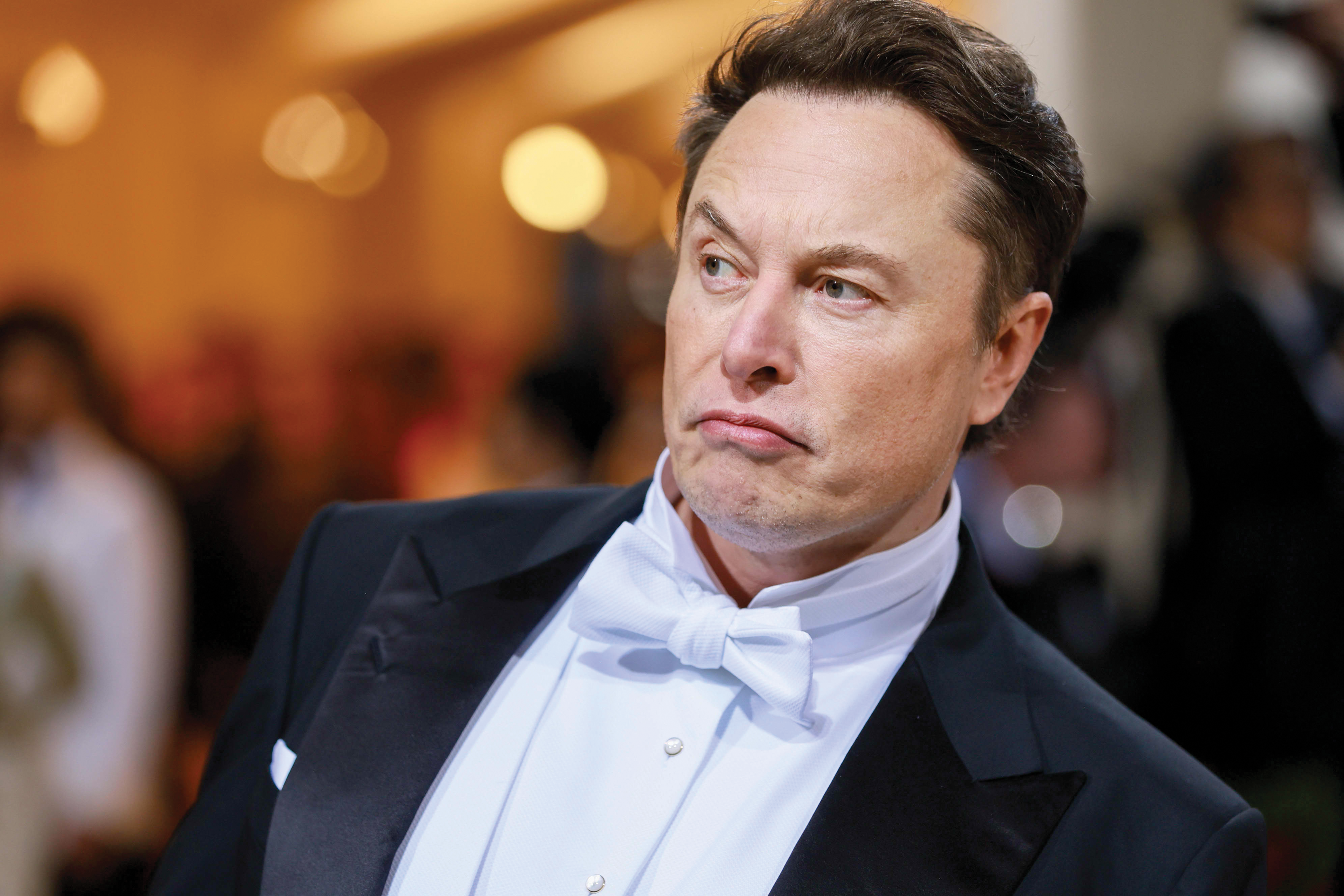LABEL: Theron and Musk do not fit the description of what African American has historically referred to, the writer argues…

By Dwayne Wong (Omowale)
Every so often I encounter individuals who believe that they are being clever by referring to white South Africans such as Charlize Theron or Elon Musk as African Americans because they are from South Africa, which is in Africa.
The most obvious response to this is that African is a racial term which usually refers to the dark-skinned people of Africa. This wouldn’t include the white settlers whose ancestors originally settled in South Africa from Europe. The attempt to suggest that white South Africans could be classified as African Americans confuses not only the history of South Africa, but it also confuses the origins of the term African American.
South Africa was colonised by Dutch and British settlers. The Afrikaners are descended from European settlers who arrived in South Africa in the 17th and 18th centuries. These settlers were primarily of Dutch origin and were known as Boers. The Boers were farmers who established small communities in the Cape Colony and Natal. The Boers developed their own unique culture and language, known as Afrikaans. Afrikaans is a blend of Dutch, German, and Khoisan languages.
In the early 19th century, the British took control of the Cape Colony from the Dutch. This led to a mass migration of Boers, known as the Great Trek, to the interior of South Africa. The Boers established several independent republics, including the Orange Free State and the Transvaal.

The period of British colonialism in South Africa began in 1806 when the British seized control of the Cape Colony from the Dutch. The British colonial authorities sought to exert control over the local population, which was made up of a diverse array of ethnic and linguistic groups. They implemented a number of policies that aimed to suppress local cultures and customs, while promoting British values and traditions.
One of the most significant impacts of British colonialism in South Africa was the displacement and dispossession of the native population. The British seized land from indigenous people and forced them onto reserves, which were often overcrowded and under-resourced. This led to widespread poverty and inequality, which would continue to plague South Africa long after the end of colonial rule.
British colonialism in South Africa had a profound impact on the country’s economy. The British colonial authorities sought to exploit South Africa’s resources for their own benefit, often at the expense of the local population. They established a number of industries, including mining and agriculture, which were geared towards exporting raw materials to Britain.
This economic model had a number of negative effects on South Africa’s economy. It led to a lack of diversification, as the country became overly reliant on a few key exports. It also created a highly unequal society, with a small elite profiting from the exploitation of the country’s resources, while the majority of people lived in poverty.
The social impact of British colonialism in South Africa was also significant. The British sought to impose their own values and traditions on the local population, which often meant suppressing local cultures and customs.
They also implemented policies that aimed to divide and conquer the local population, pitting different ethnic and linguistic groups against each other.
In 1948, the National Party, led by Afrikaner politicians, came to power in South Africa. They implemented a system of racial segregation known as apartheid. Apartheid was designed to separate blacks, coloureds, and Indians from whites and give preferential treatment to whites. The Afrikaners played a central role in the implementation and maintenance of apartheid.
The system which was set up in South Africa was one which imposed a strict system of racial segregation which was not unlike Jim Crow in the United States. White people in South Africa clearly saw themselves as being distinct from the local African population. This was further demonstrated by the fact that the organisations which opposed apartheid did so by asserting their African identity. Here I am referring to organizations such as the African National Congress and the Pan Africanist Congress.
Not only does the history of South Africa show that white settlers saw themselves as being distinct from the African population, but there is also the matter of what the term African American means. The term was popularised by Jesse Jackson in the 1980s, but it had existed long before then. Malcolm X used the term in the 1960s to explain that African Americans are Africans who were captured and taken to America.
The term African American was being used as early as 1782. The term refers to a people who are captured from Africa and taken to America. African Americans generally descend from various parts of the African continent, not one specific country. In fact, the label “African American” is actually older than most of the countries in Africa today. Remember that most modern countries in Africa came into existence as the result of colonialism.
In conclusion, I will state that a white person born in South Africa is a South African by nationality. The term African American does not refer to nationality, however. It has always referred to a racial and national identity.
White people like Musk do not fit the description of what African American has historically referred to. Musk, Theron, and other white people from South Africa were not the intended targets of racists systems such as Jim Crow and apartheid. Those systems were intended to target African people.
* The article appeared in the (US) Medium Daily Digest online publication. Omowole is a Pan-Africanis activist, historian and author
LET’S RETELL TRIUMPHANT STORIES OF OUR FOUNDING FATHERS
AFRICA DAY: Time to honour legacy of black clergy who secured legal victory in 1900s for Africans to own freehold land…
By Njabulo Vilakazi
Today is the now-famed Africa Day that still means nothing to a lot of Africans of many hues, culture and tradition; that for a majority among those who care at all for this day, serves as a window into the heart of the motherland, its soul, its ancestrally steeped-into ethos, including its nascent wretched political governance – warts and all.
I am practising hard in my mind to no more use that filthiest word ever – corruption – in Afrika, since slavery by the Western colonisers and their present minions, ensconced in seats of ‘power’, nay, of the now endemic multi-puck diseases on our skin and the worst puck/goblin spirit in our now badly demented psyche.
The word corruption has lost value even among the worst of thieves or villains. Isn’t it time, for wordsmiths to construe some Fourth Industrial Revolution Day, confining it into a waste-bin of nominalism.
To the African generations to come, Africa will soon become just a concept that also equally came to lose its now totally badly tottering value…
Unless we begin to, tell and retell its founding fathers, mothers and warriors’ story so as to appropriately contextualise story and worth for the benefit of all humankind today, just as the former conquerors fashioned out the normative narratives for our eternal consumption.
Yes, eon of years before ‘independence’, ‘semi-uhuru’ and the mightily damned democracy, there were valiant liberation fighters in our beloved land, South Africa, as early as 1903, especially for the clergy, preparing legal wars for Africans to possess land.
And among the foremost leaders of these holy battles in the court case (Tsewu 1903-1905) was the Reverend Edward Tsewu, of the African Methodist Church and formerly of the Ethiopian Movement, together with others like Rev Jantjie Zacharaia Tantsi, Rev Mangena Mokone and Rev Marshall Gabashane, who began in that year rolling their sleeves to do battle to get land.
Tsewu, the leader of this group, could not understand how could Black Africans own land in the Cape Colony, and not in the old Transvaal
The epic Tsewu legal victory in 1904 for Africans to own Freehold Land in their own names, led to the establishment of Evaton in 1905, and the subsequent buying there of the land on which Wilberforce Training College in 1908 was founded and built by a purely African self-reliant and self-help effort of Africans on a piece of land bought by Rev JZ Tantsi, also of the African Methodist Episcopal Church and his sons.
Prior to that, Tsewu had bought himself a piece of land – the first ever to be owned by an African at Henley-on-Klip, 10 kilometers from Meyerton, in 1904 and later at Evaton whose African Freehold Rights preceded the lesser rights afforded land owners in areas like Alexandra and Sophiatown. Ironically the present African land grabber – in the form of the African National Congress – remains chagrined by Evaton’s superior history and the fact of political parties other than itself having sprouted in this Vaal/Gauteng nerve centre of education, culture, religion, liberation nous and lead.
Interestingly, in 2007, Oprah Winfrey followed in the footsteps of her mother continent ancestor, Edward Tsewu, to establish a school for girls’ excellent academic opportunities on the very Henley-On-Klip.
Finally on July 16, Tsewu, Winfrey and the very Meyerton town and Wilberforce Institute/Community College that are continuing to lead by their example, will be honoured at the Servant-Hood Vaal Hall Of Famers Luncheon.
This ceremony is expected to be honored by most South African lovers of “His/Herstory” and its self-reliance still lived out by the followers of Tsewu, Meyerton and Winfrey’s will to self-liberate. And, by the way, the concept of liberation has got nothing to do with politics, especially for those who have nous insights into human existence sciences and its historical realities.
All persons desiring to be part of the luncheon and induction ceremony of the most august and of Revered Hall Of Famers should contact the Rev Paul Vilakazi on 0766435656 (Whatsapp) also on email-njabulo42@yahoo.com.
* Former AME pastor and author


































